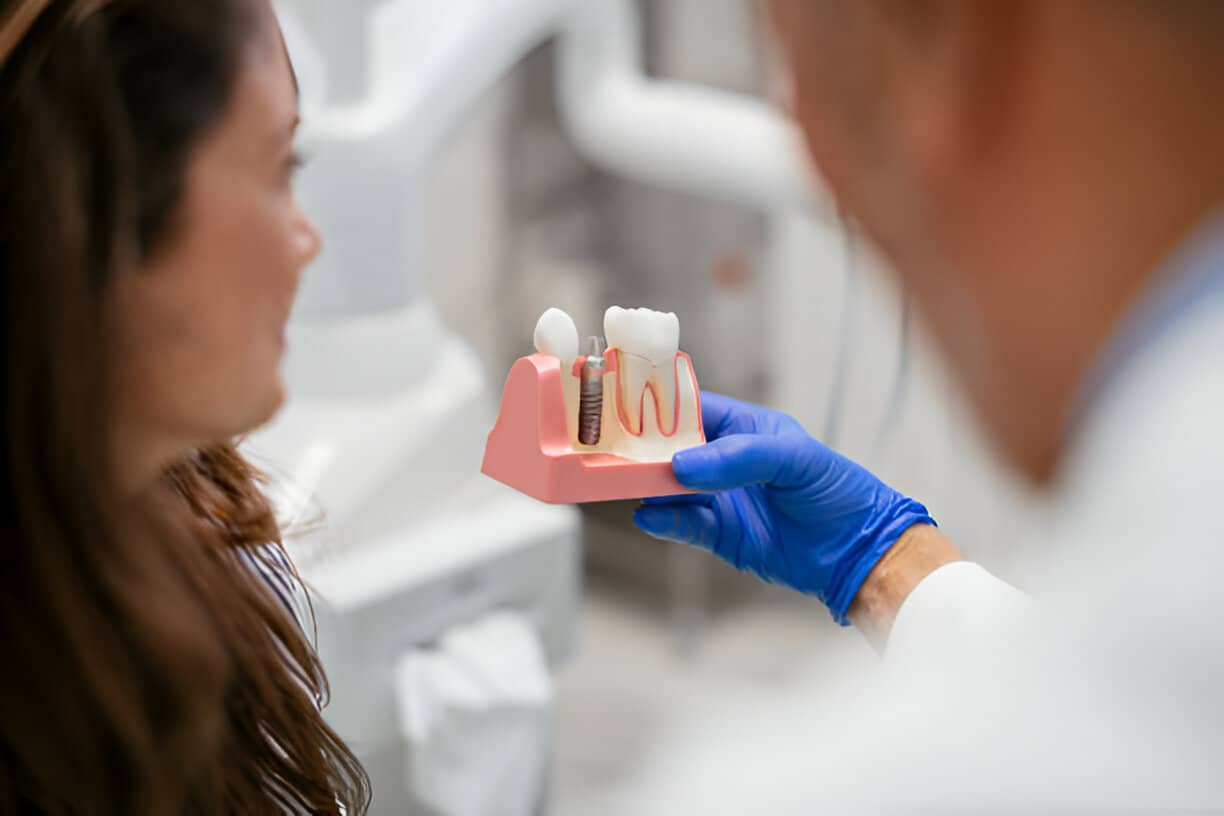
Getting dental implants in Richmond Hillis can help you replace missing teeth. However, the number of implants that can be done at once is often a common concern. Understanding the number of dental implants you can have is crucial for making an informed decision about your treatment. It’s important to be aware of both the possibilities and limitations to ensure the best outcome for your oral health.
What are Dental Implants?
Dental implants are small metal posts, often titanium, that are positioned within the jawbone to function as the root of a tooth. After the implant has been positioned, a replacement tooth or bridge is attached to it. This process allows one to restore one’s teeth’ function and appearance.
Why Do People Need Dental Implants?
People may require dental implants to replace teeth that have been lost due to trauma, decay, or any other variety of problems. Implants are much like natural teeth in appearance and function. They help you to eat, speak, and smile with confidence since they provide a firm and durable solution for missing teeth. They assist in preventing problems that a missing tooth may create and preserve oral health.
How Many Implants Can You Have?
The answer to this question lies in several factors that are required to determine how many dental implants a person can get at once:
- Number of missing teeth: If you have one missing tooth, then you require one implant for it. In case your several teeth are missing, then more implants are placed on your teeth. Some people might need full sets of implants in certain cases.
- Jawbone health: The jawbone needs to be strong and in good health to perform the implant. When the bone is weak, the dentist may recommend bone grafting before placing implants. The maximum number of implants that can be inserted at once depends on the jawbone.
- Treatment plan: Your dentist in Richmond Hill will create a personalized treatment plan based on your needs. They will determine the number and placement of implants required. Depending on your situation, the procedure may be completed in a single visit or may require multiple appointments.
- Overall health: Certain medications can impact the success of dental implants. Your dentist will review your health and medication history to ensure you are in optimal condition before proceeding with the procedure.
Placement of Single Implant
If you only need one implant, the procedure is fairly straightforward. The dentist will place a single implant into the jawbone where the tooth is missing. After four to six months, once the implant has integrated with the bone, a crown (replacement tooth) will be attached to complete the restoration.
Placement of Multiple Implants
In case several teeth are missing, multiple dental implants at once can be placed by a dentist. There could be different ways to do this:
- Bridge implants: If a patient has several missing teeth, a dentist might insert two or more implants to support a bridge. A bridge is a set of replacement teeth attached to the implants.
- Full- arch implants: People occasionally require complete tooth replacements. The entire arch of new teeth could be supported by many implants.
- All-on-4 or all-on-6 implants: These are special modalities where four or six implants are fixed into the jawbone to support a full set of teeth. These methods are used when replacement has to be done for many teeth at once.
The Procedure for Getting Implants
- Planning on a number and location: The dentist takes X-rays and then makes a detailed plan after evaluating it. As it helps to decide how many dental implants are needed and where they should be placed.
- Placing the implants: The implants are placed into the jawbone during surgery. If there are multiple implants needed, then they could be placed in one or more visits as required.
- Healing: After the implants are placed, the jawbone needs some time to heal and grow around them, which might take months. Subsequently, the implants will be ready to support the artificial teeth.
- Attaching the crowns: The crowns are affixed to the implants after healing has taken place. Crowns appear and function like natural teeth.
Can You Have 2 Dental Implants Next to Each Other?
Yes, you can have two dental implants next to each other. When several nearby teeth are lost, this method is often used to restore your smile because it offers a reliable and efficient fix.
How Many Dental Implants Can Be Done at Once?
The exact number of dental implants that will be placed will depend on several factors, which can include the overall oral health of the patient, the condition of the jawbone, and the number of missing teeth. The placement of several dental implants generally takes place in a single appointment. Therefore, this only applies to patients undergoing a total arch replacement.
Transform Your Smile with Advanced Implant Solutions.
Tooth Matters Dental Care is a reputable clinic that aims to deliver quality services in a clean, warm, and friendly environment. We have a team of dentist in Richmond Hill who offer a wide range of services, such as dental implants, general checkups, and more. In case you have any questions, our team will assist you with the right advice. Contact us today to transform your smile!
